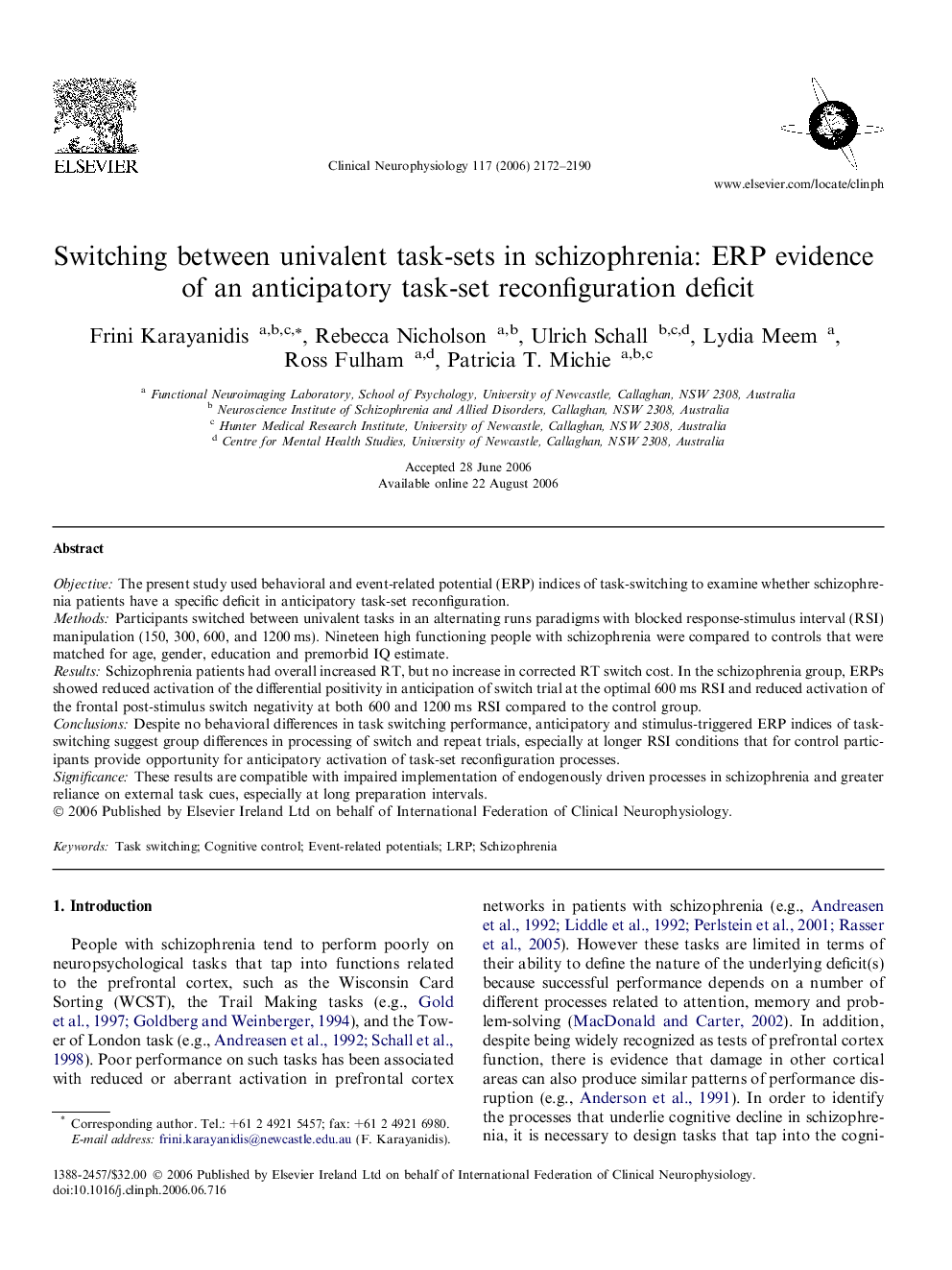| Article ID | Journal | Published Year | Pages | File Type |
|---|---|---|---|---|
| 3047666 | Clinical Neurophysiology | 2006 | 19 Pages |
ObjectiveThe present study used behavioral and event-related potential (ERP) indices of task-switching to examine whether schizophrenia patients have a specific deficit in anticipatory task-set reconfiguration.MethodsParticipants switched between univalent tasks in an alternating runs paradigms with blocked response-stimulus interval (RSI) manipulation (150, 300, 600, and 1200 ms). Nineteen high functioning people with schizophrenia were compared to controls that were matched for age, gender, education and premorbid IQ estimate.ResultsSchizophrenia patients had overall increased RT, but no increase in corrected RT switch cost. In the schizophrenia group, ERPs showed reduced activation of the differential positivity in anticipation of switch trial at the optimal 600 ms RSI and reduced activation of the frontal post-stimulus switch negativity at both 600 and 1200 ms RSI compared to the control group.ConclusionsDespite no behavioral differences in task switching performance, anticipatory and stimulus-triggered ERP indices of task-switching suggest group differences in processing of switch and repeat trials, especially at longer RSI conditions that for control participants provide opportunity for anticipatory activation of task-set reconfiguration processes.SignificanceThese results are compatible with impaired implementation of endogenously driven processes in schizophrenia and greater reliance on external task cues, especially at long preparation intervals.
